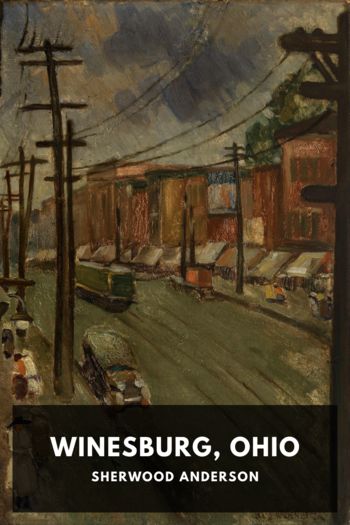A Home Like Ours by Fiona Lowe (inspirational books for students .txt) 📗

- Author: Fiona Lowe
Book online «A Home Like Ours by Fiona Lowe (inspirational books for students .txt) 📗». Author Fiona Lowe
Eat now! A string of running emojis followed.
Delight twirled and danced inside her as she drove the short distance to the garden car park. The ornamental gates were open, but Helen had told her the morning tea was on the veranda of the cottage so she didn’t enter.
‘Yoo-hoo! Tara!’
She tried not to sigh. She’d met Judith Sainsbury at Ian’s seventieth birthday party and had been stunned when the woman told the catering staff to serve the cake despite the fact the event was at Tingledale.
‘Hello, Judith.’
The woman reached her, puffing slightly. ‘I’m glad I caught you.’
‘Oh?’
‘I want to know who gave you permission to erect that rather large advertising sign?’
‘The sponsorship sign?’
‘Is that what it is?’
Tara was proud of the design and aesthetics of the sign. It didn’t look anything like blatant advertising for the store.
‘The community garden’s logo’s there too,’ she pointed out.
‘You do realise you haven’t donated to the community garden.’
Tara gestured towards the new shed on the adjacent block that was surrounded by burgeoning garden beds. ‘That looks like a community garden to me.’
‘Well, it’s not. Helen’s gone rogue. You’ve given tools to illegal immigrants.’
Tara’s temples throbbed. ‘Illegal immigrants? I thought all of those were in detention centres in other countries.’
Judith huffed. ‘They should be. Instead they’re here in Boolanga, breaking the law. But I don’t have to tell you and Jon about that, do I? Ian said you’ve had to install security cameras at the store. Boolanga’s always been such a safe place, but now! Well, it’s an insult to our values. Our way of life is under threat! To be perfectly honest, Tara, I’m surprised you and Jon were prepared to give those people anything.’
‘Helen said it was for the community garden extension.’
‘Yes, well.’ Judith’s lips pursed. ‘You’re not the first person she’s deceived.’
‘I didn’t know.’ Anger stirred, gaining momentum fast. How dare Helen lead her to believe the refugee garden was part of the community garden.
‘If you want to withdraw your donation, the community garden will happily take over the equipment.’
Something about the glee in Judith’s voice snagged, but Tara couldn’t think why. Then the memory of Helen’s words rushed back: Can I give you a tour and introduce you to the women? Tara’s building indignation ran slap-bang into Helen’s invitation—the one she’d refused. Nausea churned her stomach. Judith wanted her to feel aggrieved and deceived. As much as Tara wanted to embrace that easy out, she couldn’t ignore the fact that she’d rejected the opportunity to get all the information. She’d been furious with Jon and more interested in meeting Zac. Not only had she donated to a refugee garden, she appeared to be in the middle of a dispute between Judith and Helen. What a mess!
‘I’ll think about it, Judith.’
With her thoughts bouncing as wildly as one of Flynn’s super-balls, she walked to the cottage. Clusters of balloons in Hoopers’ signature colours were tied to the veranda posts and a bright and beautifully embroidered tablecloth covered a trestle table groaning with food. Dishes of dates and figs, yoghurt, dips and flatbread, along with scones, jam and cream battled for space around a samovar.
A group of women wearing red headscarves decorated with intricate beadwork stood chatting together, but three women stood out. Helen, with her spiky magenta-tipped hair; a young woman with a muddy blonde ponytail holding a baby on her hip; and a statuesque black woman wearing a turban the colour of sunshine on a ripened wheatfield.
Tara’s feet stalled. Dear God, what had she done?
‘Tara! Welcome!’ Helen beckoned her onto the veranda and the chatter behind her died away. ‘Ladies, I’m thrilled to introduce you to Tara Hooper. Without her and her husband, Jonathon’s generosity, our garden wouldn’t be thriving like it is.’
Applause rippled around her, but Tara’s gaze stayed fixed on Fiza, who in turn was looking straight at her, her expression unreadable. Tara couldn’t decide if it was a triumphant ‘gotcha’ gaze or one of utter disinterest.
The woman with the baby moved between them, breaking the contact. She shoved a plate of food at Tara. ‘Eat these.’
‘I, um—’
‘No, seriously. Eat them. They’re so good.’
Then hot tea was being pressed on her by a woman with a shy smile, and Helen was introducing her to everyone individually. Tara’s tongue struggled to wrap itself around some of their names and her brain flailed trying to remember them. They shook her hand gently, their eyes cast downwards, before thanking her in quiet tones. Fortunately, Fiza seemed to have disappeared.
A woman called Aima invited her to come and view their garden. ‘We are so happy we grow our food here.’
‘They’re obsessed with chives,’ Jade told Tara.
‘Obsessed?’ Aima asked.
‘It means you think about them all the time,’ Jade said.
‘Ah! So you are ob-sessed with flowers.’
Jade laughed. ‘Good one, Aima.’
‘What’s inside the greenhouse?’ Tara asked.
‘Fiza’s obsession,’ Jade said.
Tara wished she hadn’t asked.
‘Where is Fiza?’ Helen glanced around. ‘She was keen to show off her maize.’
‘She said she had to go,’ Jade said.
‘Go? Why? She—I hope everything’s okay. It wasn’t one of her children, was it?’
Jade shrugged. ‘I dunno. She said to leave her bowl on the veranda and she’ll pick it up tomorrow. I wouldn’t want to eat lentils every day, but this dip isn’t too gross. Milo’s loving it.’ She swept bread through a red dip and offered it to the baby, who licked it off the crust.
‘Helen, is there somewhere quiet we can have a word?’ Tara’s voice caught on the enormity of what she’d done.
‘Sure. Come inside.’
Tara followed Helen into the cottage’s kitchen and down a dark hall into the living room. Her renovator muscles flexed and memories of restoring Tingledale crowded her. High on love and the excitement of being newly married, she and Jon had spent nights and weekends knocking out lath and plaster walls. They’d found hidden mantlepieces that had been covered up years earlier and, under layers of wallpaper, the remnants of the original paint. Then they’d built the house up again—a commitment to their future





Comments (0)